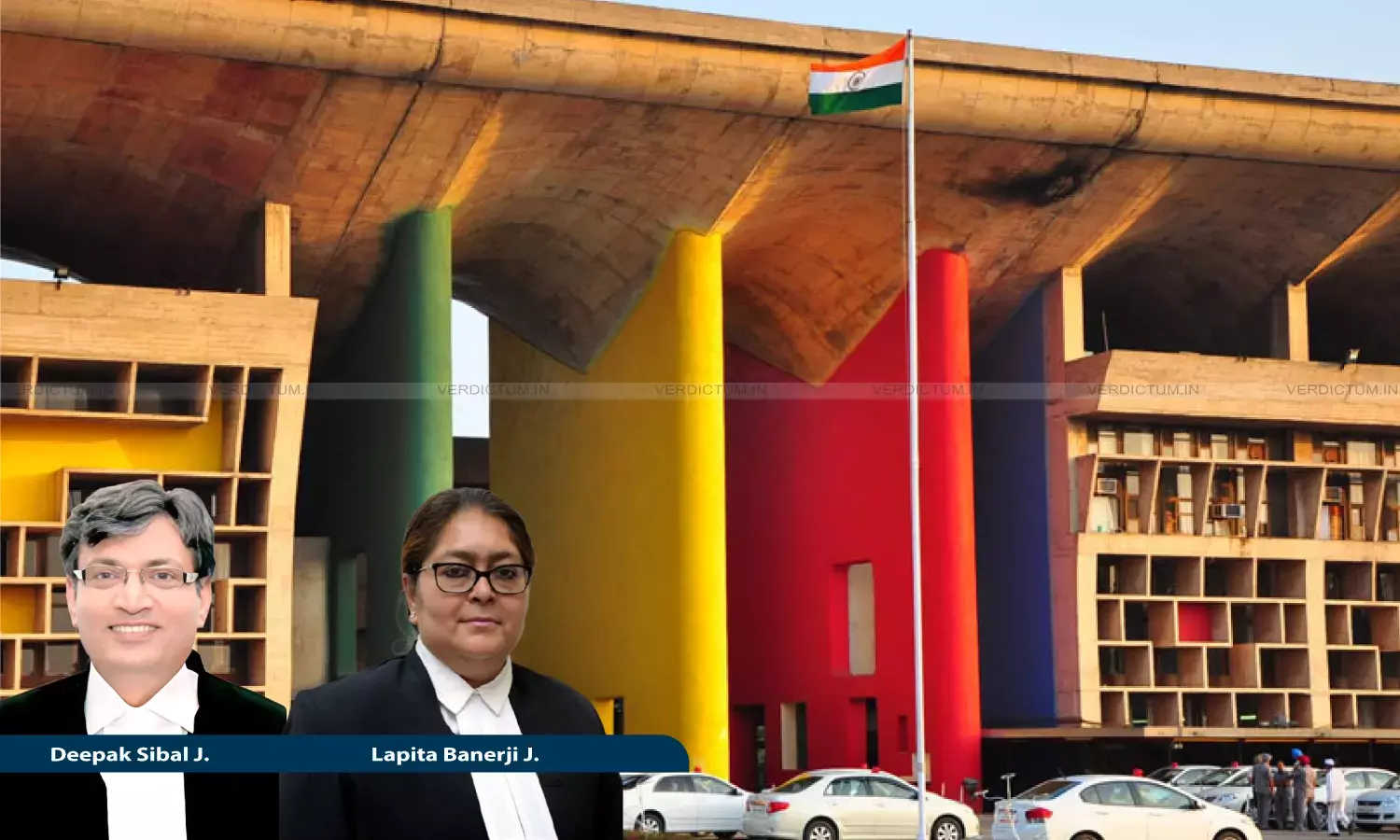Prolonged Custody In UAPA Cases By Itself A Ground For Bail: Punjab & Haryana High Court
The High Court stressed that prolonged incarceration without substantial progress in trial and absence of credible evidence linking the accused to terrorist acts violates the fundamental right to life and liberty under Article 21 of the Constitution.

Justice Deepak Sibal, Justice Lapita Banerji, Punjab and Haryana High Court
The Punjab & Haryana High Court has held that prolonged custody would by itself entitle the accused to bail, even under the UAPA, in accordance with Article 21 of the Constitution.
The Court was hearing an appeal filed by an accused who had remained in custody for over five years under the Unlawful Activities (Prevention) Act (UAPA), during which only one out of forty prosecution witnesses had been examined.
A Division Bench comprising Justice Deepak Sibal and Justice Lapita Banerji, while deciding the matter, observed that: “Article 21 of the Constitution of India enshrines the fundamental right to protection of life and liberty which also includes the right to a speedy trial. Long custody by itself would entitle the accused under UAPA to the grant of bail by invoking Article 21 of the Constitution of India.”
Advocate Amit Agnihotri appeared on behalf of the appellant-accused. Shekhar Verma, Addl. AG, Punjab, represented the State.
Background
The appellant-accused had been booked under the provisions of the UAPA and the Arms Act. He had remained in custody for over five years and six months, while the trial showed no substantial progress. The trial court had earlier rejected his bail application. In appeal, it was urged that continued incarceration without trial violated the mandate of Article 21, which guarantees the right to life, liberty, and speedy trial.
Court’s Observations
The Punjab & Haryana High Court, while relying on precedents laid down by the Supreme Court in Union of India v. K.A. Najeeb (2021), reiterated that the right to a speedy trial is inherent in Article 21 of the Constitution, and prolonged detention without progress in trial cannot be allowed to become a punishment in itself.
While emphasising that the very length of custody can be a sufficient ground to grant bail under UAPA, the Court stated, “…long custody by itself would entitle the accused under UAPA to the grant of bail by invoking Article 21 of the Constitution of India. The Constitutional Court would like to prevent a situation where the lengthy and arduous process of trial becomes the punishment in itself.”
The Court also relied upon the precedent in Sheikh Javed Iqbal vs The State Of Uttar Pradesh, wherein the Apex Court had underscored that “a Constitutional Court cannot be restrained from granting bail to an accused on account of restrictive statutory provisions in a penal statute if it finds that the right of the accused-undertrial under Article 21 of the Constitution of India has been infringed. In that event, such statutory restrictions would not come in the way.”
Further, the Bench also referred to the Supreme Court’s ruling in Mukesh Salam v. State of Chhattisgarh and another, where the petitioner, charged under multiple provisions of the UAPA, had been in custody for over four years with only a fraction of the prosecution witnesses examined. In that case, the Apex Court had directed release on bail, observing that “continued detention of the petitioner would not subserve the ends of justice as there was no likelihood of early conclusion of the trial.”
In the present case, the appellant had already been in custody for over five years, with only one of the forty witnesses examined. The Court found that keeping the appellant incarcerated in these circumstances would amount to infringement of his constitutional rights.
The Bench underscored that, even if it was to be assumed that the accused was indulging in terrorist activities or participating in acts preparatory to the commission of such offences, the prosecution was still required to place on record relevant material directly connecting the accused to “advocating, abetting, advising, inciting or conspiring to commit any terrorist act.” The Bench held that in the absence of such evidence, bail could not be rejected after an extended period of incarceration, noting that “no worthwhile record has been brought on record by the prosecution.”
The Bench also highlighted that for over five and a half years, no effort had been made by the State to interrogate the main co-accused. The Court observed that “no reasonable explanation has been provided as to why the main co-accused has not been arrested in the present case and why custodial interrogation has not been done till date.”
Conclusion
While reiterating the law laid down by the Supreme Court, the Punjab & Haryana High Court concluded that when prolonged custody itself infringes the right to liberty, the constitutional safeguard under Article 21 prevails over statutory restrictions under UAPA. In such cases, the Court affirmed, bail must be granted to ensure that the process of trial does not itself become a punishment.
Accordingly, the appeal was allowed, the impugned order of the trial court was set aside, and the appellant was directed to be released on regular bail subject to conditions, including furnishing of requisite bail bonds to the satisfaction of the trial court or the Duty Magistrate concerned.
Cause Title: Ashish Kumar Versus State Of Punjab (Neutral Citation: 2025:PHHC:122288-DB)
Appearances
Petitioner: Advocate Amit Agnihotri with others
Respondents: Shekhar Verma, Addl. AG, Punjab


